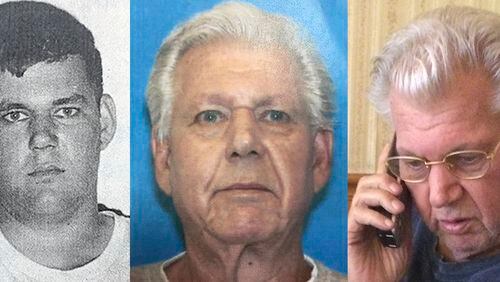From a drifter to a thief to a fugitive on the run for half a century, Bob Stackowitz was told Monday that he can begin a new phase in his life: That of a free man.
Authorities in his home state of Connecticut formally approved the request of Georgia officials to allow Stackowitz, 71, to remain in Connecticut under that state's supervision. He will be free to live, periodically reporting to a parole officer.
“He has been accepted for supervision,” said Richard Sparaco, executive director of that state’s Board of Pardons and Paroles. “It’s already been finalized.”
That's a huge change for the sickly fugitive who escaped from a Georgia prison camp 48 years ago and was finally tracked down in Connecticut in May. Georgia officials initially wanted Stackowitz returned to face justice here.
“I’m pretty happy I’m not having to go back,” Stackowitz said Monday. “I would be stepping out of my life here, and going back to jail.”
He viewed going back to jail as nothing less than a death sentence.
Last week — days before he was scheduled for an extradition hearing — the Georgia Board of Pardons and Paroles announced a "medical reprieve" for the man whose health problems include congestive heart failure, bladder cancer and diabetes. They concluded he was no threat to society and that his medical condition would be best addressed outside of a prison setting. They cited compassion and costs.
Stackowitz, who was raised in Connecticut, had been drifting from state to state after a failed marriage when he came to Georgia, hooked up with some bad people, and was caught robbing a home in Henry County. He was convicted and sentenced to 17 years in 1968, though he escaped after two and headed back to his home state.
For the first time in some 50 years, the tall man with a shock of gray hair will not be worried that law enforcement will swoop in and take him away.
Looking ahead, he said his goals remain short-term. Doctors have given him anywhere from two to four years more to live. Problems with his heart and knees keep him pretty much home-bound.
Still, he is thankful to Georgia for this arrangement. And thankful, he said, that he will be allowed to spend his last days in the comfort of his own home.
About the Author






